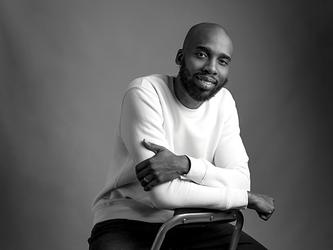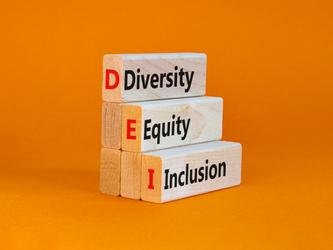Kenny Imafidon: ‘Hopelessness is a big challenge in society’
What prompted you to write That Peckham Boy now?
I have been keen to share the story I have to share. I started in 2017, so I’ve been writing it for ages. It’s funny, I don’t think I’m actually that enthusiastic about writing. I just really understand the importance of communicating. It’s definitely a long-term project for me.
The book is described as ‘a real-life manifesto calling for positive change for those on the fringes of society’. What is the biggest challenge for marginalised people?
One of the big things I’m trying to do with this book is sow seeds of optimism and hope. Hopelessness is a big challenge in society that I don’t think we spend enough time looking at how we can overcome. A lot of the work I’m doing, whether it’s in research or in any other arena, is about this. There are challenges and life is difficult in many ways, but, for me, hopelessness is one of the biggest things that’s growing. That’s something I try to do on a personal level and, hopefully, through this book as well.
What could the research industry do differently to foster a greater sense of optimism in society?
When doing work with so-called marginalised groups, a lot of the time we focus on the deficit in these communities and not on the assets – we should have more of an asset-based showcasing of insights as well. It’s about saying, ‘despite all this, we can see clear, strong signs of community’. It’s something we challenge ourselves on. It’s very easy – people want to know the challenges and barriers – but it’s also about asking, ‘what are the assets?’
There are other communities we can look at, outside of the ones we identify with, and say ‘OK, this community is really good at doing this. We could do that better’. I could argue that, in Britain, we don’t really understand community in the way a lot of places in Africa and Asia do, for example.
We could all, myself included, be better at taking an asset-based, rather than a deficit-based, approach when showcasing insights. You could read through all the research and say: ‘This community is one of the most resilient communities, despite all the odds.’ It allows you to ask different questions.
Even looking at myself, I could think ‘woe is me’. I grew up in a single-parent household; however, there are traits that my mum has instilled in me that are priceless. Often, we’re just looking for what’s missing, what’s lacking. And if the media keep pushing that out, and we as researchers keep pushing that out, where do people see the hope?
One of the things about the book is that it’s not just me sharing a memoir; it’s also an opportunity for me to talk about societal issues and it allows me to open up those questions. For example, if you know that our criminal justice system is the way that it is – and we send people to prison and they cost us, on average, £40,000 a year – do you think that is genuinely value for money? These are the questions that we, as researchers, can begin to ask.
There are a lot of areas where we could be more provocative, to get people to look at things through a different lens. Like, what would you want prisons to look like, based on the fact that 99% of people are going to leave one day? How you’d design it, and what you’d want to happen, would suddenly change.
That’s the power of research and the reason I got into it in the first place. It’s very important to understand the power of ‘what is’, but we should still be able to dream and ask ‘what could it be?’ We don’t really see enough of that.
You told Impact in 2019 that part of the reason you set up ClearView was poor decision-making in politics, business and charities. Has there been any improvement in the use of evidence?
Yes and no. There’s much greater awareness around nuance and differences since we started this work. Some of the things we flag or mention are now becoming more mainstream, which is positive. However, trust in data has become a heightened issue.
The pandemic highlighted a lot of the differences or disparities. Some of that was born out of people not making the right decisions or thinking through things beforehand, which they could have. I think we can agree that, in a lot of places, evidence was already there. There has been progress; however, there are external factors that have forced us to get to this point.
Have your priorities changed since founding ClearView?
It’s always been about making sure research is more equitable and, at the same time, looking after people who participate in our research. Those things have remained the same. We may have had to adapt tactics or approaches because the world has been shifting, but the heart of what we’re doing is the same.
Cost of sample continues to be an issue for more inclusive research. How can this change when this systemic barrier is in place?
It’s about being honest – the cost is the cost. On a practical, normal-citizen level, I don’t really have much choice about my water bill, do I? The costs are the costs and I just pay them.
People are always going to try to cut corners where they feel it’s acceptable to cut corners. We’re always clear with this; we focus on speaking to people with diverse backgrounds, and that could be people who identify as white. When talking about marginalised research, people have an idea in their head, but there are so many people who have never been invited to take part in research – never ever been asked what they think. So our key thing is not just about doing the research; it’s how to engage people so that this stuff becomes normal.
Sometimes, the issue is that we need to make it clearer, for example, what a client won’t get as a result, and what they could gain [if they spent more]. A lot of the time, that doesn’t happen. It’s about saying, ‘if you want these demographics, here’s the cost benefit of doing so’. As service providers, we need to be clearer and to play more of a role in showing the cost benefits of doing so.
Has there been positive progress in the industry’s inclusion conversation in the past few years?
Yes, I think in terms of the stuff that MRS is doing – Rebecca Cole’s work on representation and the EDI [equality, diversity and inclusion] council, for example – is positive, and the work that CORe [Colour Of Research] and other groups are doing. People have been much more intentional about advocating, and making sure that this conversation remains quantitative – whether that has shifted the hearts and minds of people is different. I think the minds of people have changed, but I don’t know if their hearts are yet to follow. The heart is a different story.
There are enough groups and players contributing towards more inclusive research and, to me, that is very positive. A lot of this has come to the forefront through big global external things, like the murder of George Floyd.
What should research businesses do differently to address systemic inequalities in society?
One of the simplest things each individual can do is be intentional about going on their own journey of understanding the system in the first place, to know how they can tackle injustices. But you have to intentionally seek to know and understand that system, and engage and partner with people who can do that for you.
There’s so much I don’t know, but I’m happy to find people who have a better understanding. Having periods of your life when you are invested in all those different topics has value – I do think there’s a lot of value researchers can bring to society.
It’s sometimes very easy to be passive to the [research] process, so you just keep doing it – gathering data, analysing and interpreting – but there’s way more.
Also, it’s about never forgetting that when people do share this stuff with us, there’s a responsibility to make sure that we carefully share that, and that it’s from an asset-based place, but not denying the reality of the truth. It’s very hard and it’s something we’re constantly trying to get better at.
That Peckham Boy: Growing Up, Getting Out and Giving Back, is published by Penguin and released in July. You can purchase a copy here now.
This article is from the July 2023 issue of Impact.

We hope you enjoyed this article.
Research Live is published by MRS.
The Market Research Society (MRS) exists to promote and protect the research sector, showcasing how research delivers impact for businesses and government.
Members of MRS enjoy many benefits including tailoured policy guidance, discounts on training and conferences, and access to member-only content.
For example, there's an archive of winning case studies from over a decade of MRS Awards.
Find out more about the benefits of joining MRS here.














0 Comments